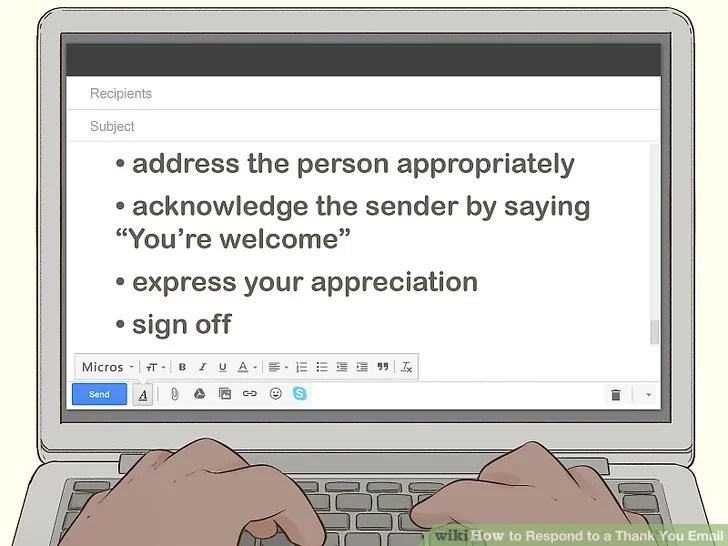What To Reply To Thank You: A Comprehensive Guide
Understanding the appropriate response to a "thank you" is essential for effective communication. Whether in personal or professional settings, knowing how to reply appropriately can strengthen relationships and convey gratitude. In this article, we will explore various ways to respond to "thank you," providing you with the tools to enhance your conversational skills.
Expressing gratitude is a universal practice, but the way we respond to it varies based on context, culture, and the relationship between the individuals involved. This article delves into the nuances of saying "you're welcome," as well as alternative responses that can enrich your interactions. By the end of this guide, you will feel confident in your ability to reply to thank you in any situation.
In addition to offering direct responses, we’ll explore the importance of tone, body language, and context when replying to expressions of gratitude. So, let’s dive into the world of polite responses and discover the best ways to acknowledge someone else's gratitude!
Table of Contents
- Understanding 'Thank You'
- The Importance of Replies
- Standard Responses to 'Thank You'
- Alternative Responses
- Cultural Considerations in Responses
- Responding in Professional Contexts
- Responding in Personal Contexts
- Conclusion
Understanding 'Thank You'
The phrase "thank you" is a simple yet powerful expression of appreciation. It can be used in various contexts, from casual conversations among friends to formal acknowledgments in professional settings. Understanding the significance of this phrase is crucial for crafting an appropriate response.
What Does 'Thank You' Mean?
"Thank you" serves not only as a polite gesture but also as a way to acknowledge someone's help, kindness, or support. Responding to this expression of gratitude shows that you recognize the other person’s feelings and appreciate their acknowledgment.
When is 'Thank You' Used?
People use "thank you" in numerous situations, including:
- Receiving a gift
- Completing a favor
- Getting assistance with a task
- Participating in a social event
The Importance of Replies
Responding to "thank you" is not just a matter of politeness; it plays a crucial role in communication. Your response can influence the dynamics of the relationship and create a positive environment. Here are some reasons why replies matter:
- Strengthening Relationships: A thoughtful response can enhance your connection with others.
- Encouraging Future Interactions: Positive exchanges promote continued communication.
- Demonstrating Emotional Intelligence: Acknowledging gratitude shows empathy and awareness.
Standard Responses to 'Thank You'
One of the most common responses to "thank you" is "you're welcome." However, there are several standard replies you can use, depending on the context.
- You're welcome!
- No problem!
- My pleasure!
- Anytime!
Alternative Responses
In addition to standard replies, here are some alternative responses that can convey warmth and appreciation:
- I'm glad I could help!
- It was nothing!
- I'm happy to help!
- Thank you for your kind words!
Cultural Considerations in Responses
It's important to recognize that responses to "thank you" can vary significantly across cultures. Understanding these differences can enhance your communication skills and help you navigate social interactions more effectively.
Western Cultures
In many Western cultures, responses like "you're welcome" or "no problem" are common. These replies are often expected in casual and formal contexts.
Eastern Cultures
In some Eastern cultures, modesty plays a significant role. Responses may include expressions of humility, such as "I didn’t do much" or "I’m just doing my duty."
Responding in Professional Contexts
In a professional environment, how you respond to thank you can affect your reputation and relationships with colleagues. Here are some suitable responses:
- I'm glad to assist!
- Thank you for your appreciation!
- It's my responsibility to help the team!
Responding in Personal Contexts
In personal situations, your response can reflect your personality and the nature of your relationship with the other person. Here are some casual replies:
- Anytime, friend!
- Of course, I love helping!
- Don't mention it!
Conclusion
In summary, knowing how to reply to "thank you" is a valuable skill that enhances interpersonal communication. Whether you choose a standard response or an alternative one, the key is to acknowledge the other person's gratitude sincerely. By doing so, you not only strengthen your relationships but also create a more pleasant social atmosphere.
Now that you have a comprehensive understanding of how to respond to "thank you," we encourage you to practice these responses in your daily interactions. Share your experiences in the comments below, and don’t forget to check out our other articles for more tips on effective communication!
Thank You for Reading!
We hope you found this article helpful and informative. Feel free to explore more content on our site, and we look forward to seeing you again soon!
What Happened To IShowSpeed? The Journey Of The Internet Sensation
Atlantis: The Lost Empire - Kida's Journey And Legacy
Understanding Andre Levrone Jr Net Worth: A Deep Dive Into His Financial Success


